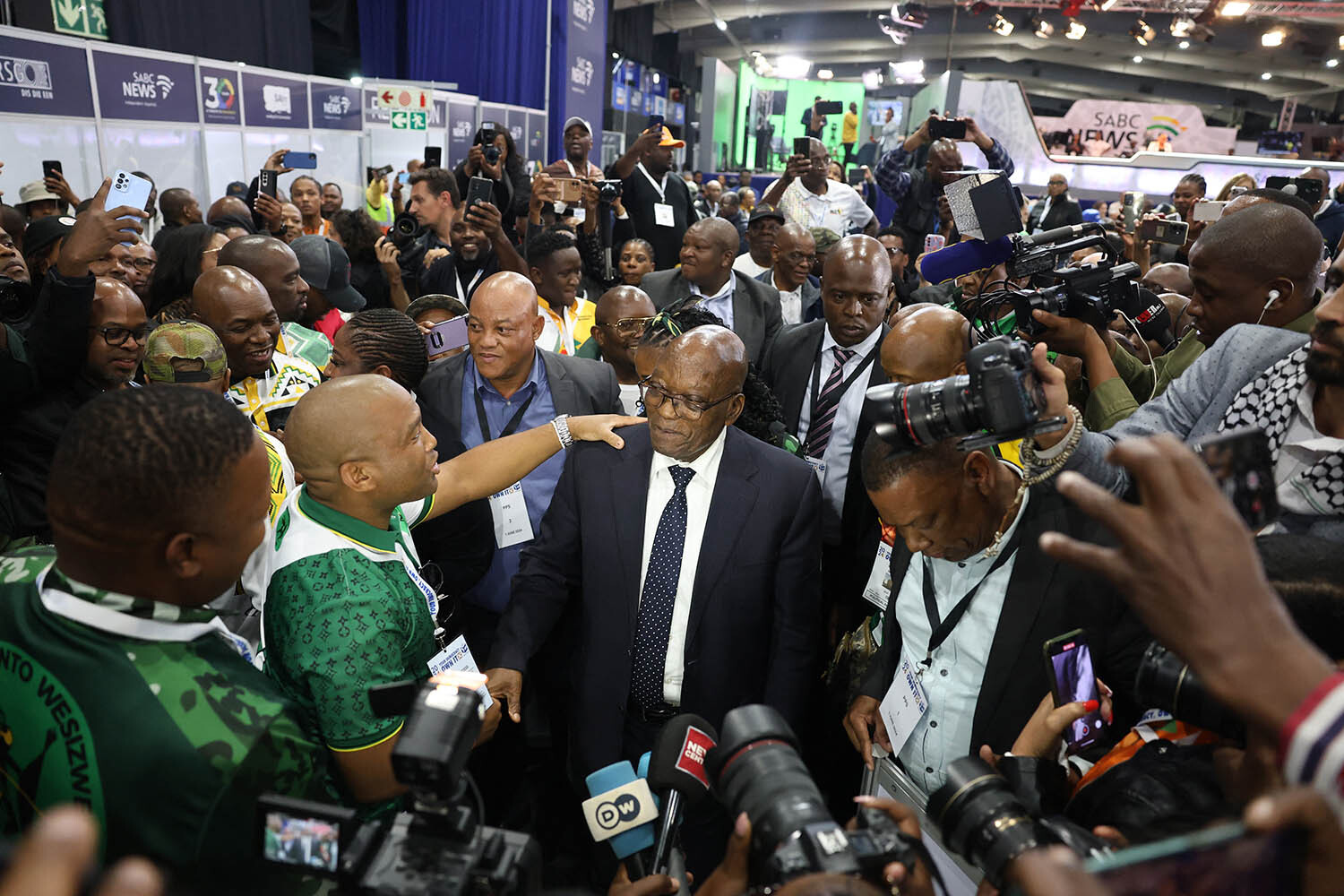
After 30 years in power, the party of Nelson Mandela has seen its support collapse in last week’s elections. For the first time South Africa’s African National Congress must seek coalition partners.
So what? Africa’s most stable democracy is in uncharted territory. The ANC easily won six consecutive elections after the end of white rule and has governed outright since 1994. That hegemony has ended in a seismic election whose final results were still being tallied yesterday. This much is clear:
- The party now led by president Cyril Ramaphosa dropped well below the 50 per cent threshold needed to govern alone.
- A complicated scramble to form a coalition is underway.
- That scramble may mean a choice between hard-left populists and the Democratic Alliance, seen by blacks as a white party of privilege.
By the numbers
40.2 per cent – ANC’s vote share as of last night, down 17 points from 2019
21.8 per cent – Democratic Alliance vote share, unchanged in five years
14.6 per cent – uMkhonto we Sizwe (MK) vote share, a dramatic capture of ANC support by a party set up last year as an act of revenge by ex-President Jacob Zuma
ANC apocalypse. The ANC remains easily the country’s largest party but that does not diminish the scale of the political earthquake. ANC support has cratered since the last election thanks largely to anger at high unemployment, high crime, and crumbling services and infrastructure. Many poor black voters feel they are no better off than they were under apartheid.
The ANC’s vote share rose from more than 62 per cent when Mandela took power in 1994 to nearly 70 per cent in 2004. It fell slowly for the next 15 years – and fast for the past five.
South Africa now enters two weeks of intense coalition horse-trading before parliament must meet and vote for a president.
Despite its dreadful result, the ANC remains in pole position to gather other parties together. Talks have already begun. With a big field of political parties, and deals likely to include the control of provinces and local municipalities as well as the national government, there are a huge number of permutations on the table.
Coalition of the unwilling. More than 50 parties stood at the election and between them smaller parties accounted for 10 per cent of the vote. But the ANC slipped so far below the 50 per cent threshold it will need to court the bigger opposition parties to get over the line:
- Economic Freedom Fighters (9.5 per cent). Formed by Julius Malema, a former head of the ANC youth wing and pantomime race-baiter, this is in effect a radical Marxist splinter of the ANC. Members wear red berets and advocate for seizing white-owned land and nationalising the country’s mines. A coalition might suit those on the left of the ANC, but it would badly spook investors and markets.
- uMkhonto we Sizwe. MK’s founder and leader, Zuma, was ousted by Ramaphosa over corruption allegations. His party scored big in KwaZulu-Natal province among Zuma’s fellow Zulus. Yet the allegations of corruption against him are toxic and will make the ANC wary. His proposals to abolish the “Western” judicial system, nationalise businesses and rewrite the constitution to give more power to feudal chiefs will make business warier still.
- Democratic Alliance. Seen as business friendly and competent, the main opposition has been running Western Cape province since 2009. But it barely increased its vote share this year despite the ANC’s crisis. It struggles to break through among black voters and is strongly opposed to the ANC’s black empowerment and universal healthcare policies. That will put off the ANC’s more left-wing faction, though a coalition with the DA is still thought to be Mr Ramaphosa’s preferred choice.
Ramaphosa ramifications. Will Ramaphosa be around to make the choice? The scale of the ANC disaster on his watch will embolden his internal enemies. There are already rumours of moves to oust him. Zuma and Malema have said he must go for them to join forces with the ANC. If he does, he would probably be replaced by his deputy, Paul Mashatile, who is under investigation by the police on allegations of corruption, which he denies.
Bumpy ride. Coalitions at South Africa’s town hall level have a reputation for being short and acrimonious. Forging them at the national level will be no easier.

